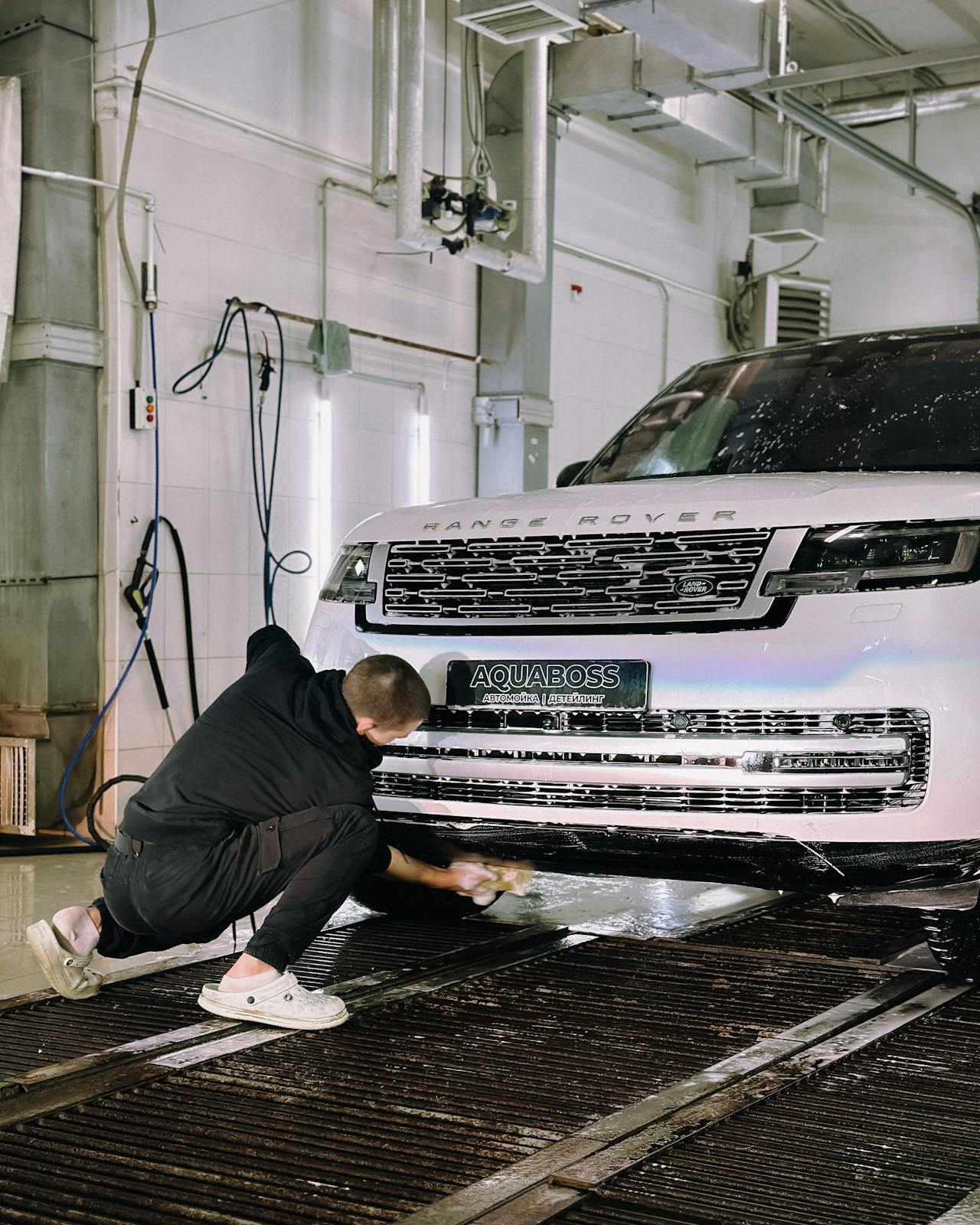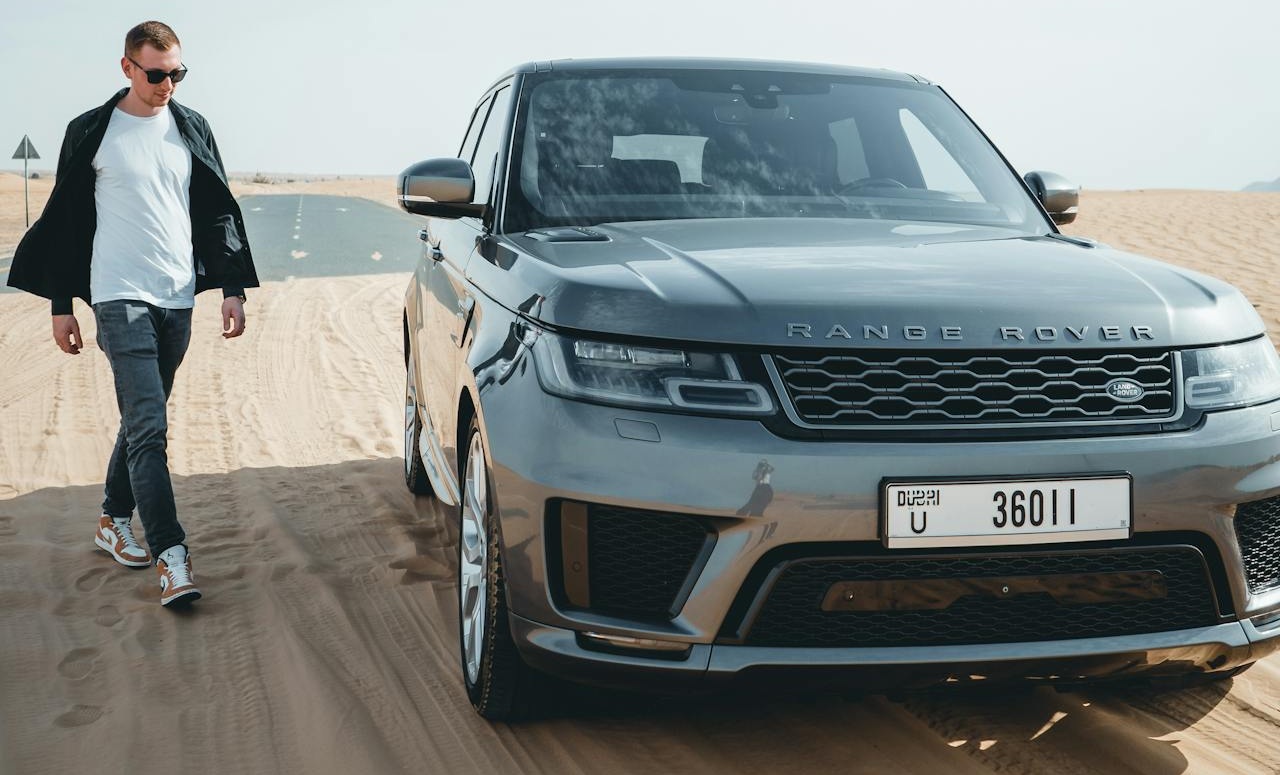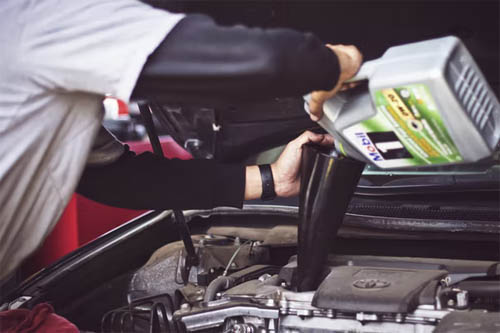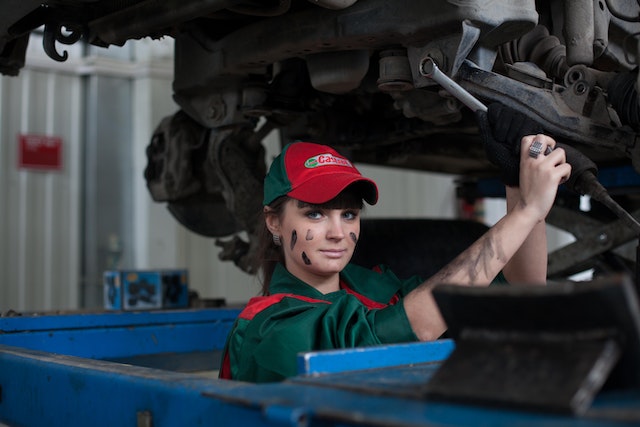This most recent fifth-generation vehicle is the quintessential example of the luxury SUV type, which was first popularised by the original Range Rover. Even if the Bentley Bentayga and the massive Mercedes-Benz GLS are much more competitive now, the Range Rover is still a formidable opponent.
With seven different engines to choose from, the Range Rover's powertrain options are far from limited.
Two diesels, three petrol engines and two plug-in hybrid variants make up the lineup. There will soon be an all-electric model as well.
 Oil Type For Land Rover Range Rover.
Oil Type For Land Rover Range Rover.All Range Rovers now have an eight-speed automatic transmission, regardless of the engine. This is coupled with a low-range transfer case and all-wheel drive.
Both diesels have 3.0-liter, six-cylinder turbocharged engines. The 350PS D350 accelerates from 0 to 62 miles per hour in 6.1 seconds, whilst the 300PS D300 takes 6.9 seconds.
Both variants feel fast on the road thanks to a good amount of torque, and there isn't much diesel rattle.
The three petrol engines are a 3.0-liter six-cylinder turbocharged engine and two 4.4-liter twin-turbocharged V8 variants.
Given that the P400 six-cylinder engine has 400 horsepower and can accelerate from 0 to 62 miles per hour in 5.8 seconds, it seems a bit unjust to refer to it as a "entry-level" choice.
With its 530PS output, the P530 4.4-liter V8 turbocharges the engine and reduces the 0-62 mph time to 4.6 seconds. The 615PS P615 engine, which is only available in SV trim, can accelerate from 0 to 62 miles per hour in under 4.5 seconds. For an SUV that weighs more than 2500 kg, that is impressive performance.
The turbocharged 3.0-liter gasoline engine serves as the foundation for both plug-in hybrid models, which are then paired with an electric motor.
With the Evoque, built as a coupe and convertible, the manufacturer Land Rover finally said goodbye to the box image of its Range Rover brand. And at the same time enriched the SUV class with new body shapes. We took a look at the maintenance booklet for the Evoque of the LV generation to find out when Land Rover recommends an oil change for the entry-level model of the luxury brand Range Rover. In this article you will find information on the different oil change intervals, oil quantities and viscosity approval. You will also find out how much an oil change costs in the Evoque LV and how oil change costs can be minimized by choosing a cheap workshop.
 Oil Type For Land Rover Range Rover.
Oil Type For Land Rover Range Rover.The manufacturer has documented in the service booklet when the time has come for the oil change in the entry-level Range Rover model for the various engines. For the all-wheel drive Evoque LV with the two-liter petrol engine, Land Rover recommends adding new lubricant every 26,000 km or once a year up to model year 2012. However, the intervals have changed from the 2013 Evoque: the newer SUVs should have an oil change annually or every 16,000 km. For the LV versions with the 2.2-liter diesel engine, Land Rover has specified an annual oil change interval or a maximum mileage of 26,000 km. There are, however, exceptions that can shorten the intervals. For example, the engine oil should be changed earlier than stated if you drive your Evoque under difficult conditions, such as frequent short-distance traffic.
To ensure that the lubricant has retained its viscosity, you should have the condition of the engine oil checked regularly at a specialist workshop. If the oil is too dirty with abrasive particles, the engine of your Range Rover can be damaged. When changing the oil, you must also ensure that you only use lubricants that have been approved by Land Rover. You can find out about the appropriate viscosity classes at the service center. The employees in the workshop also know how many liters of engine oil need to be replaced. The Evoque 2.2 D requires 5.9 liters of oil. The Evoque with the 2.0 liter petrol engine, on the other hand, needs 5.6 liters. Details on oil quantities, viscosity classes approved by Land Rover and oil change intervals can be found in the tables below.
| Car Make & Model | Year | Oil Grade |
|---|---|---|
| Land Rover Range Rover Classic 2.4 Turbo Diesel | 1986-1989 | 15W40 Mineral |
| Land Rover Range Rover Classic 2.5 Turbo Diesel | 1989-1992 | 15W40 Mineral |
| Land Rover Range Rover Classic 2.5 200Tdi Diesel | 1992-1994 | 15W40 Mineral |
| Land Rover Range Rover Classic 2.5 300Tdi Diesel | 1994-1995 | 15W40 Mineral |
| Land Rover Range Rover Classic 3.5 V8 Petrol | 1970-1990 | 10W40 Semi-Synthetic |
| Land Rover Range Rover Classic 3.9 V8 Petrol | 1989-1995 | 10W40 Semi-Synthetic |
| Land Rover Range Rover Classic 4.2 V8 Petrol | 1992-1995 | 10W40 Semi-Synthetic |
| Land Rover Range Rover P38A 2.5 TD Diesel | 1994-2001 | 10W40 Diesel Semi-Synthetic |
| Land Rover Range Rover P38A 4.0 V8 Petrol | 1994-2001 | 10W40 Semi-Synthetic |
| Land Rover Range Rover P38A 4.6 V8 Petrol | 1994-2001 | 10W40 Semi-Synthetic |
| Land Rover Range Rover L322 3.0 TD6 Diesel | 2002-2006 | 5W30 Semi-Synthetic |
| Land Rover Range Rover L322 3.6 TDV8 Diesel | 2007-2011 | 5W30 Semi-Synthetic |
| Land Rover Range Rover L322 4.4 TDV8 Diesel | 2011-2012 | 5W30 Semi-Synthetic |
| Land Rover Range Rover L322 4.2 S/C V8 Petrol | 2005-2009 | 5W30 Semi-Synthetic |
| Land Rover Range Rover L322 4.4 V8 petrol (BMW) (Bmw) | 2002-2005 | 5W40 Fully Synthetic |
| Land Rover Range Rover L322 4.4 V8 petrol (JLR) (Jlr) | 2005-2009 | 5W30 Semi-Synthetic |
| Land Rover Range Rover L322 5.0 V8 Petrol | 2010-2012 | 5W20 Fully-Synthetic |
| Land Rover Range Rover L322 5.0 S/C V8 Petrol | 2010-2012 | 5W20 Fully-Synthetic |
| Land Rover Range Rover L405 3.0 V6 twin turbo Diesel | 2013 on | 5W30 Fully Synthetic |
| Land Rover Range Rover L405 3.0 V6 mono turbo Diesel | 2013 on | 5W30 Fully Synthetic |
| Land Rover Range Rover L405 4.4 SDV8 4 Sdv8 | 2013 on | 5W30 Fully Synthetic |
| Land Rover Range Rover L405 2.0 turbo Petrol | 2015 on | 5W30 Fully Synthetic |
| Land Rover Range Rover L405 3.0 V6 S/C Petrol | 2014 on | 5W20 Fully-Synthetic |
| Land Rover Range Rover L405 5.0 V8 Petrol | 2013 on | 5W20 Fully-Synthetic |
| Land Rover Range Rover L405 5.0 S/C V8 Petrol | 2013 on | 5W20 Fully-Synthetic |
| Land Rover Range Rover Evoque L538 Range Rover Evoque L538 - Diesel | 2012-2018 | 5W30 Semi-Synthetic |
| Land Rover Range Rover Evoque L538 2.0 TD Diesel | 2012-2018 | 5W30 Fully Synthetic |
| Land Rover Range Rover Evoque L538 2.0 turbo petrol Petrol | 2012-2018 | 5W30 Fully Synthetic |
| Land Rover Range Rover Evoque L551 2.0L AJ200P turbo Petrol | 2019 on | 5W30 Fully Synthetic |
| Land Rover Range Rover Evoque L551 2.0L AJ20D4 turbo Diesel | 2019 on | 5W30 Fully Synthetic |
| Land Rover Range Rover Velar L560 2.0L Turbo Diesel | 2017 on | 5W30 Fully Synthetic |
| Land Rover Range Rover Velar L560 3.0L Supercharged V6 Petrol | 2017 on | 5W20 Fully-Synthetic |
| Land Rover Range Rover Velar L560 5.0L Supercharged Petrol | 2017 on | 5W20 Fully-Synthetic |
The most popular brand used in a Range Rover Sport oil change is Castrol EDGE Professional, a premium fully synthetic oil that is available at auto parts stores in the Crofton area. Of course, you should always check your owner's manual to find out exactly what kind of oil is recommended for your Range Rover Sport model year and trim level. 5w30 fully synthetic oil is the recommended type for longer engine life and oil longevity.
Synthetic vs. Conventional Motor Oil Although both synthetic and conventional oil are processed from crude oil, synthetic oil goes through a more thorough refining process that improves its ability to clean engines and better protects important engine components. The Range Rover Sport's precisely engine needs synthetic motor oil, which is more oxidation-resistant and will guarantee a smooth ride on Severna Park roads and beyond. Castrol EDGE Professional 5w30 completely synthetic oil also has additives that prevent wear on important engine components. Castrol and Land Rover have been working together for more than a decade, so you can be confident that their oil is of the best calibre.

